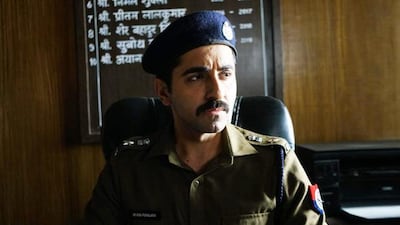Article 15 came out last week to rave reviews from critics. The hard-hitting social drama takes multiple real life incidents from the Hindi heartland of India to show the malaise of caste discrimination.
The film draws its title from Article 15 of India’s constitutional book that forbids discrimination against any citizen on grounds of religion, race, caste, sex or place of birth.
The Constitution of India was helmed by BR Ambedkar, from the Dalit caste who eventually adopted Buddhism as his religion, with millions following suit. He stepped down after drafting the constitution in 1951 and died five years later, six months after converting to Buddhism.
Even though he finished the rule book that serves as a guiding light to the world's biggest democracy, Ambedkar vowed that he would burn the book himself should the impact he desired on "social democracy" be missing. Though he did not burn the book, he had many reasons to feel disillusioned: even a recommendation from MK 'Mahatma' Gandhi to specially draft in Ambedkar, a Dalit, as law minister.
While the film Article 15 makes a reference to Ambedkar's feelings, it hits home the point that seven decades of intent on paper must start being reflected in the mindset of a modern India.
Director Anubhav Sinha’s tag line for the film was: “We created differences. Now it is time to make a difference.” The abhorrent actions committed in the name of caste issues have turned fatal on many occasions, and Indian politics is still dictated by the dynamics of caste considerations.
Even Bollywood has been found lacking. Films like Bandit Queen and Sonchiriya touched on the topic of caste discrimination, but both films did not set the cash registers ringing. Article 15 has garnered 20 million rupees over the first three days, but that pales in comparison to the 190m rupees that Kabir Singh, about a forlorn lover in self-destructive mode, got the week before. Kabir Singh is a far worse film, too.
Veteran actor Anupam Kher was briefly chairman of the National Film & Television Institute of India last year, and says taking on serious roles is an actor's choice. “It is an individual choice for any actor [to do socially relevant films],” Kher says. “As an actor, there are films that you do for directors and producers. But every actor can always say yes to an issue he feels strongly about; it is a personal choice.”
But it may not be as simple as Kher puts it, gossip in the film industry circles says that established actors are always reluctant to rock the boat on sensitive issues that they think may cut into their fan base. Reports also suggest there have been projects which did not see the light of the day simply because actors refused to be part of it.
On the choice of Ayushmann Khurrana to play the lead role of a cop from the upper caste disrupting the established order of oppression, the film's director Sinha said: “I needed a fantastic actor who believed in the subject like me, and was willing to work the extra mile.”
Sinha was issued with legal attempts to block the film's release, and Hindu groups have stopped screenings in places such as Kanpur.
One group announced a reward of Rs 700,000 (Dh36,000) to anyone who cut Sinha's tongue.
In an interview with Film Companion, Khurrana himself hinted that he had his doubts about taking on the role, even though he liked the script. "It was something I would have loved to do, but had I not done Andhadhun and Badhaai Ho [both super hits that preceded Article 15] maybe.... [it wouldn't have happened]."
The film ended with a message: "Shall we begin?" That is easier said than done for so many reasons, and that's why more films such as Article 15 are needed for a better India.


